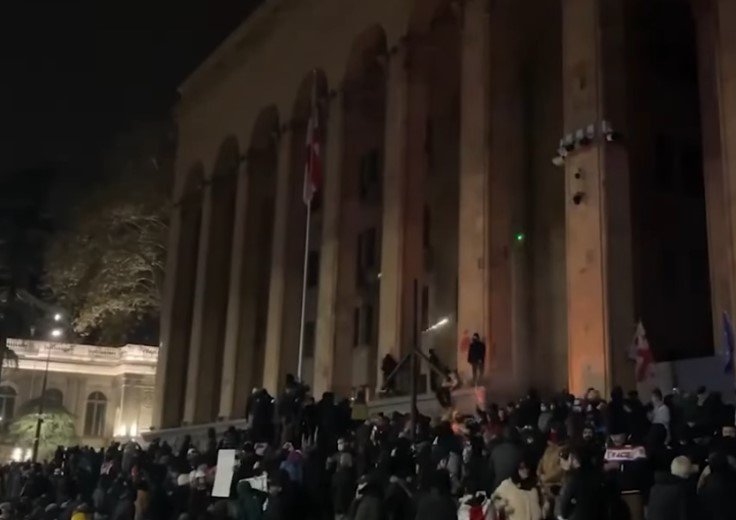The streets of Tbilisi are once again filled with anger and defiance. Protesters refuse to back down as Georgia’s ruling party tightens its grip, edging the country closer to Moscow’s sphere of influence. With mass arrests, allegations of police brutality, and a controversial law targeting foreign-funded organizations, the battle for Georgia’s democratic future is intensifying.
A Familiar Fight With Higher Stakes
Two years ago, public outrage forced the government to abandon its attempt to pass a “foreign agents” law, a move critics said mirrored Russia’s tactics to silence opposition. Back then, the resistance was swift and effective. But when the ruling Georgian Dream party reintroduced the bill last year, it refused to budge despite massive protests.
Thousands flooded the streets, just as they had in 2023. But this time, the government came prepared. Water cannons, mass arrests, and an increased police presence, some in unmarked uniforms, became the new reality for demonstrators. Despite the crackdown, opposition voices remain loud. “We fought this before, and we’ll fight it again,” says Ana Tavazde, a veteran activist who has seen the shift firsthand.

Violence and Intimidation on the Rise
Reports of political violence have surged. Opposition figures have been beaten in broad daylight. More than 300 protesters allege torture and ill-treatment while in custody, according to Amnesty International. Police deny the accusations, but the growing list of victims tells a different story.
The tactics used by security forces have also evolved. Protesters describe encounters with masked men who refuse to identify themselves. “They don’t wear badges or give names. They just grab you and throw you into vans,” one protester recounted.
For many, this is a chilling reminder of Soviet-era oppression. “It’s not just about a law anymore. This is about whether we are a democracy or a dictatorship,” says one opposition leader who asked to remain anonymous.
European Aspirations on Hold
Georgia’s road to European Union membership has been anything but smooth. After years of promises, the government has now pushed back its EU bid until 2028, citing political instability. Many see this as a stalling tactic designed to appease Moscow.
A recent survey by the Caucasus Research Resource Centers found that over 80% of Georgians support joining the EU. The government, however, seems to be steering the country in the opposite direction. “They are playing a dangerous game, pretending to want Europe while doing everything to please Russia,” says political analyst Lasha Bregadze.
The Standoff Continues
With protests stretching into their third month, the situation remains tense. The government shows no sign of repealing the law, and demonstrators are not backing down. “We are not afraid. We will not stop,” says one young activist, her voice hoarse from chanting slogans night after night.
What happens next is uncertain. Will international pressure force a change? Will the movement grow or fade? One thing is clear: Georgia’s political future hangs in the balance, and the people on the streets are determined to fight for it.
